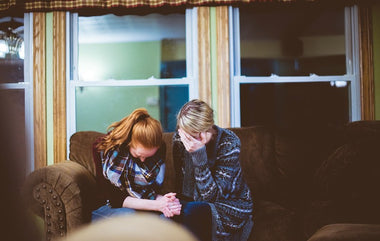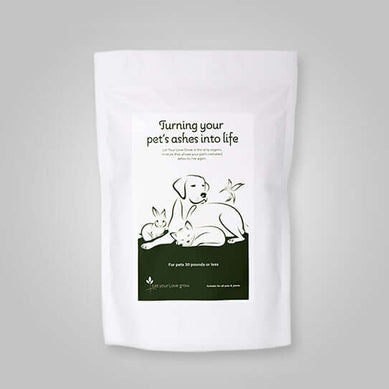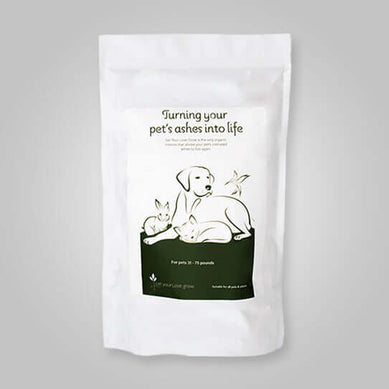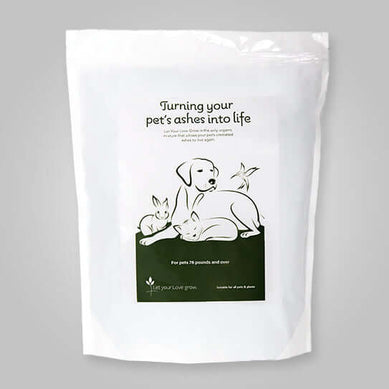Common Myths and Misconceptions about Pet Loss
Unfortunately, most animals' life spans are significantly shorter than ours. Hence, most animal lovers will lose a cherished pet sooner or later. Our emotions may be so intense that they leave us overwhelmed. This is often the case, whether we're coping with a chronic sickness in an animal, considering euthanasia, or grieving the loss of a companion.
The loss of a cherished pet, on the other hand, is no different than the loss of a close friend or family member. Grief is a natural, instinctual reaction to the loss of a significant relationship.
Nonetheless, there are numerous myths and misconceptions regarding this form of sorrow. Listed below are a few examples:
Myth #1: "Losing A Pet Is Less Meaningful Than Losing a Human Family Member"
Anyone who says that there is a scale or yardstick for grieving should be ignored.
Losing a cherished pet is equally as agonizing and heartbreaking for many of us as losing a loved one. They are our unconditional friends. Our dogs, cats, and bunnies are essential to us. They share our homes and lives with us, and it's reasonable that you would miss your furry buddy for these and other reasons.Some pet owners can't stand the idea of strolling past their pet now-empty bed. The anxiety caused by daily reminders, such as a rabbit bed in a corner, can be excruciating.
According to a growing body of evidence, losing a pet can be more distressing than losing a friend or family member. After all, it is not a contest. If you're sad – and why shouldn't you be? – you don't have to defend it.
Myth #2: "People Who Grieve After Losing a Pet Must Have a Difficult Time Connecting with Others"
Unfortunately, some people feel that the only reason we grieve so deeply over a pet is that we are having difficulties in our human relationships.
But what do these individuals know? Your pet was a significant part of your life. you offered you unconditional affection and built your days around its demands and routine. Of course, you'll be sad. The fact that you can truly love and develop strong emotional attachments with your pet speaks a lot about your bonding capacity.
It's your decision whether or not you like the companionship of animals, and we know many of us do!
Myth #3: "Grief Over the Death of Pets Devalues Human Life"
Some individuals don't comprehend how we may feel sorrow for animals. This might be due to the fact that they have never owned a pet or spent time with animals. This may be due to their perception of animals as commodities rather as live, sentient creatures. Religious or cultural views, as well as familial beliefs, can all play a role.
These views, however, do not have to be yours. It is entirely conceivable to care for both animals and humans. The value of one does not reduce the worth of the other while one is grieving.
Myth #4: "When A Pet Dies, Grief Is Like A "Dress Rehearsal"
This misconception is frequently repeated, particularly when discussing how children cope with the loss of a pet. People frequently claim that seeing a pet die is beneficial to youngsters, as though it prepares them for the "real thing" later in life.
While it's true that many of us feel sadness for the first time when a pet dies while we're young, it's a fallacy to believe that the loss is only a dress rehearsal. Many youngsters have a strong attachment to a pet they have had their entire lives.
Similarly, as we've seen, many adults grieve just as much, if not more, for a pet as they do for a loved one. It's not a good idea to attempt to make someone's sadness go away by treating it like a practice run.
Loss is loss, no matter how it manifests.
Myth #5: "It's Extravagant or Frivolous to Spend Money on a Pet's Funeral or Memorial"
People who have never lost a beloved rabbit may laugh at the thought of paying for cremation or creating a memorial garden for them.
One of the issues of disenfranchised sorrow, such as the death of a pet, is that society's regular milestones and rituals do not support it. There's a reason we have a period of grieving following a human death. It is followed by a burial and reception/wake, grief cards, and even bereavement leave from work. The bereaved are given structure, consolation, and significance via these rituals.
They also urge grieving families to reach out to each other for help.
Many people now understand that these milestones and rituals can offer great comfort to a grieving animal lover.
Myth #6: "Grief Is Separated into Five Phases"
The bereaved are said to go through five stages of mourning in humans and animals: denial, anger, bargaining, sadness, and acceptance.
Elisabeth Kübler-Ross established these stages in reference to people's feelings while dying of a terminal illness. They were eventually adopted to describe grief.
In actuality, sorrow isn't as neatly divided into five stages as we may think. These five feelings are common among persons who have lost a pet, although they are not permanent. According to several studies, remorse is one of the most common feelings experienced shortly after a pet's death or absence. This is especially true if you encounter triggers, such as that nice and cuddly rabbit bed your pet has always adored.
Myth #7: "It's Ideal to Adopt a New Pet As Soon As Possible"
"At least you can get a new one," or "Why don't you go out and get another one," are common phrases people hear about losing a dog, cat, or rabbit. "This will divert your attention away from how you're feeling."
This suggestion may be extremely harmful since it implies that a pet can be replaced or interchanged. The personality and uniqueness of the pet that the mourning person has lost are diminished.
This advice is, without a doubt, well-intentioned. Some of us have many pets that provide us with some solace. We typically opt to welcome a new pet into our house as soon as possible as animal lovers, but this is highly personal.
We would never recommend this to someone who has recently lost a loved one.
Myth #8: "Grief Will Pass"
Another common misconception about sorrow is that it is a linear process that comes to an end. People sometimes discuss reaching "closure" or getting "past" their grief at a particular point.
In actuality, the pain may never fully subside. Grief is like learning to walk with a stone in your shoe. It aches all the time at first, but you ultimately learn to walk differently. The rock is still there, but you've become accustomed to it and have learned to live with it.
A real animal lover would agree with this statement. Grief's nature evolves throughout time. It softens and gives way to other feelings and experiences for many of us, but it can still reappear over time.
Myth #9: "You Should Only Keep Positive Memories of Your Pet"
It's natural to reflect on the circumstances surrounding a pet's death after it passes away. It isn't easy to envision ever recalling the happy moments again during this period.
Again, well-intentioned folks may advise you to remember the happy times and forget the bad.
Some of the emotional wounds from losing your pet will always be with you. Perhaps you have regrets or regularly reflect on their dying moments. However, positive memories return after some time.
Conclusion
Often, a pet feels like a family member. The death of a pet may be a very tough and emotional event for most people. After the death of a pet, the mourning process may be extremely painful and emotionally draining. Death is often avoided, and it is considered a taboo subject. As a result, there are numerous misunderstandings concerning an animal companion's death. Unfortunately, we all know that avoiding reality won't make it disappear. It would help if you mourned your pet the best way you know.










